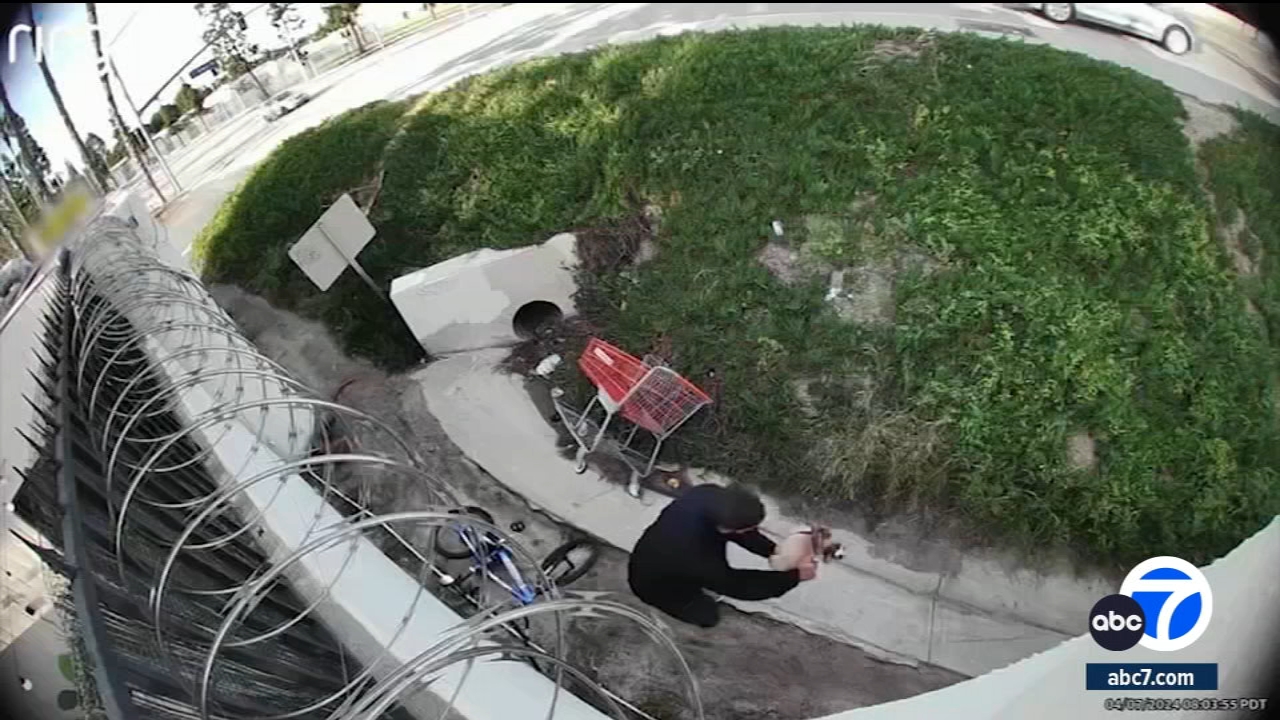Mayor Garcetti outlines how city will determine when to scale back LA 'safer-at-home' orders
Los Angeles Mayor Eric Garcetti spelled out factors the city will use to determine when to start scaling back public health restrictions.
LOS ANGELES (KABC) -- Los Angeles Mayor Eric Garcetti spelled out some of the factors the city will be using to determine when to start scaling back public health restrictions imposed during the coronavirus pandemic.
Garcetti has already extended the city's "safer-at-home" orders to May 15. But he didn't specify what might happen after that date, and whether any of those restrictions will be lifted at that time.
The mayor spoke as the city and Los Angeles County continue to see a spike in new COVID-19 cases and deaths. The county announced 472 new cases on Wednesday, 245 of them in the city. The county also announced 42 new deaths.
The county has now seen a total of 10,496 confirmed cases and 402 deaths.
Garcetti has already said he doesn't expect to allow large gatherings, such as sporting events and concerts with fans in attendance until 2021.
He announced five pillars that will be evaluated as part of the city's decision to beginning easing restrictions:
1. Testing: The city wants to see widespread testing for everyone with symptoms and those those who are asymptomatic with significant risk of transmission. There are two different types of tests that are important, Garcetti said. One is a virology test for the presence of a current infection of coronavirus. The second is an antibody test, involving a small sample of blood that can determine if a person had the virus in the past unknowingly and has developed resistance to it.
2. Real-time health surveillance: Officials need the ability to spot new outbreaks immediately, such as in one neighborhood or at a nursing facility, and take steps to contain the spread.
3. The ability to respond to new cases aggressively: Health experts need to be able to isolate infected people, trace their contacts and quarantine those who were exposed to the infected person. That could mean the training of thousands of people for new jobs, he noted
4. Hospital capacity: There needs to be a national push to increase capacity in ICUs and emergency rooms, as well as increase the supply of personal protective equipment before another wave of the virus hits.
5. Research and development: He said treatments, including vaccines and cures, need to be developed and shared quickly with doctors and nurses.
"These five principles are the principles guiding us here in Los Angeles as we will make the decisions about how and when we can begin to get back to work and back to school, back to fun, back to the life we had before all of this," Garcetti said.
RELATED: Social distancing measures may be necessary until 2022 to contain coronavirus pandemic, study shows
The mayor's announcement comes on the heels of Gov. Gavin Newsom's press conference Tuesday when he detailed a six-point plan to relax the state's stay-at-home restrictions.
The parameters and tools that are needed before the state can implement major changes to the state's stay-at-home orders and other COVID-19 interventions includes a widespread expansion of coronavirus testing and "vigilant" protection against infection of California's most vulnerable residents.
In Los Angeles as of last Friday, masks are now legally required, not just recommended, when visiting businesses such as grocery stores that remain open to the public. Both customers and workers at those businesses must wear face coverings under an order from Mayor Eric Garcetti.
RELATED: Stricter mask rules taking effect in many SoCal cities
Additionally, the Los Angeles Department of Transportation is not issuing citations to people who don't move their cars on street sweeping days, and non-metered parking limits in residential areas are also not being enforced.
Commercial areas and parking near businesses deemed essential by the "safer-at-home" orders will still be enforced. Examples of the relaxed parking laws are available at ladot.lacity.org/coronavirus
Garcetti announced Tuesday financial relief grants will be made available to artists who are struggling through the pandemic, and the city's Department of Cultural Affairs has compiled a list of "arts resources.''
The emergency relief grants are for people whose shows were canceled or if they experienced other hardship due to the pandemic, Garcetti said.
The first round of funding is only available if people apply by May 1, and artists can visit culturela.org for more information.
City News Service contributed to this report.









